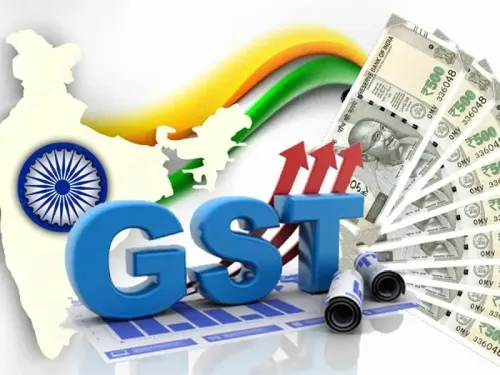Is the Neutral Stance on Indian Equities Justified Amid GST Reforms?

Synopsis
Key Takeaways
- GST reforms are expected to boost consumption.
- Emerging market equities are gaining traction.
- Fixed income yields are projected to be volatile.
- High US tariffs are pressuring exports.
- Government may pursue transformative reforms for growth.
New Delhi, Sep 6 (NationPress) A recent analysis has adopted a neutral position regarding Indian equities, highlighting that the GST rationalization is expected to enhance consumption, while a weakening dollar is providing support to emerging market (EM) equities and commodities.
SBI Mutual Fund has expressed a ‘neutral to cautious’ outlook on debt, which it attributes to a slowdown in tax revenues and a shift in institutional allocations. Within the fixed income segment, they foresee volatile yields and prefer short-tenor, high-grade bonds.
“The GST reforms should bolster the domestic economy by stimulating consumption. On the trade front, efforts to expedite trade agreements, enhance India-China relations, reduce import tariffs on inputs, and relax FDI norms are already underway,” the fund house emphasized.
Over the past year, the MSCI India index has decreased by 10%, whereas MSCI EM has seen an 18% rise. Government securities yields have surged notably from June to August, with the 10-year yield climbing from 6.19% to 6.57%.
In terms of macroeconomic indicators, India's real GDP grew by 7.8% in Q1 FY26, although nominal growth slowed to 8.8%, impacting corporate earnings.
Exports are facing new challenges due to elevated US tariffs and a reduction in government spending, which is hindering growth. The report notes that the government may be inclined to initiate transformative reforms to enhance growth.
This year, emerging market equities, industrial metals, and precious metals have outperformed, with gold remaining a favored hedge against stagflation risks and geopolitical uncertainties.
The report warns that global trade volumes could stall unless demand is increased by China or the European Union.
The GST reforms are anticipated to simplify processes, boost compliance, and lower costs for businesses, particularly for MSMEs. Consumers will also benefit through reduced rates on numerous everyday items, including small cars, two-wheelers, health insurance, agricultural equipment, and construction materials.
SBI's research division has previously projected that a consumption surge of Rs 5.5 lakh crore could generate an additional Rs 52,000 crore in GST revenue for FY26, effectively compensating for the anticipated revenue loss of Rs 45,000 crore resulting from the GST 2.0 reforms.










